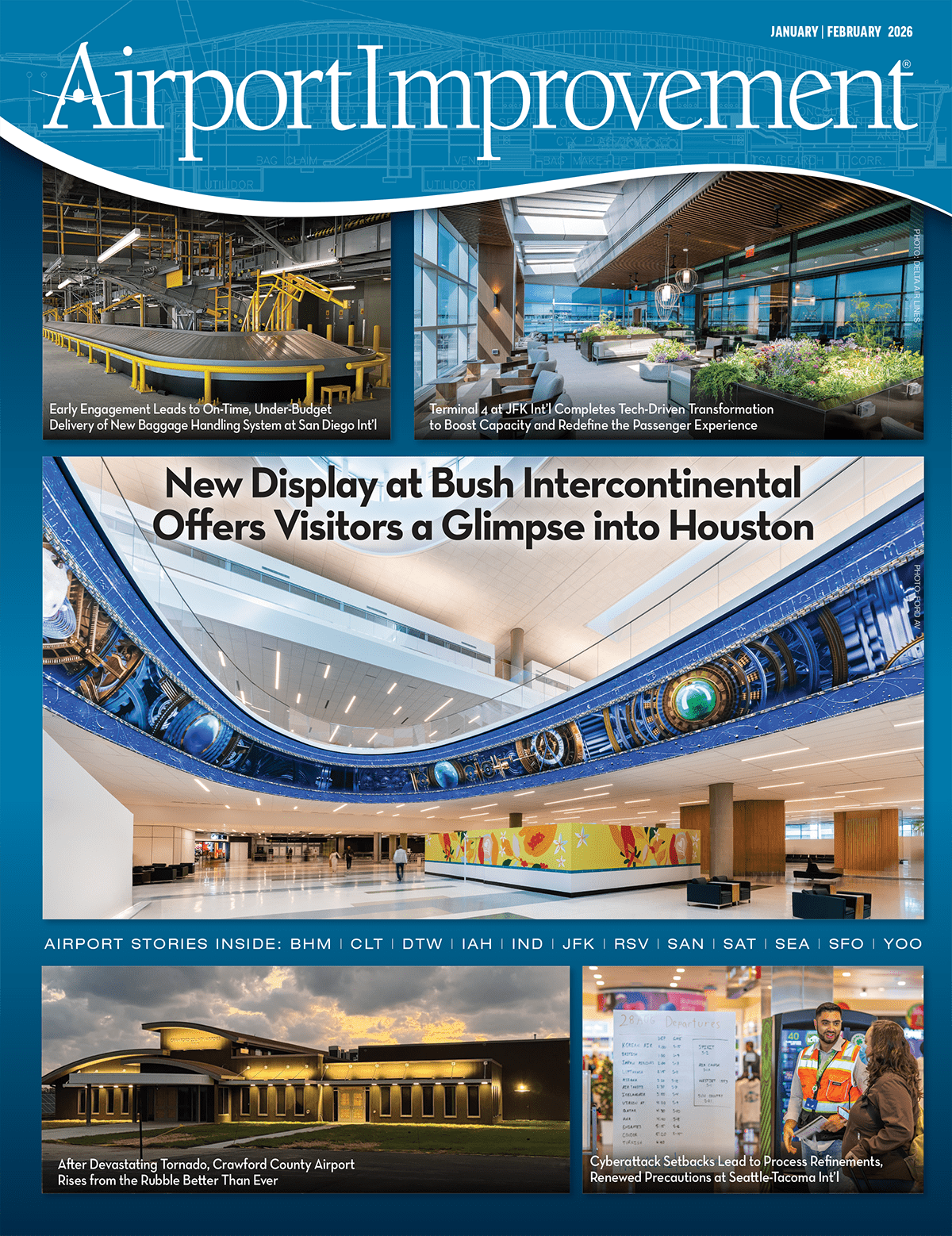Airports often award a single contract for their janitorial services. Beginning this year, executives at Seattle-Tacoma International Airport (SEA) are taking a different tack. They divided up the work and awarded contracts to three different companies, hoping that competition among the firms will improve efficiency and tangible results.
“The new contract should improve quality and performance, reward the companies with the best performance, increase the opportunities for small and disadvantaged businesses, while offering more security to our workers,” explains Stuart Mathews, director of aviation maintenance.
A cornerstone of the new approach is that each company is assigned a certain zone to clean. “We wanted competition among the contractors in the years going forward, with the hope this will raise the performance of each company,” Mathews adds.
|
Project: Subdividing Janitorial Contract Location: Seattle-Tacoma Int’l Airport Total Contract Value: $16.4 million for 2018; $17 million for 2019 New Contractors: C&W Services; PRIDE Industries; Whayne Enterprises Contract Duration: 2 yrs, with up to 3 single-year renewals based on performance Performance Tracking Software: iAuditor Rationale for New Strategy: Competition among contractors is expected to improve performance Added Benefit: Providing work & personal growth opportunities for disadvantaged workers |
C&W Services won the bids to operate in SEA’s South Satellite, Concourse A, Concourse B and public pre-security areas such as the ticketing hall and baggage claim area. It is partnering with Whayne Enterprises, a small, minority-owned business based
in Denver.
PRIDE Industries, a nonprofit enterprise that specializes in creating jobs for veterans and workers with disabilities, will maintain the Central Terminal, Concourse C, Concourse D and the North Satellite. It is partnering with Evergreen Building Services, a small, woman-owned business from Mill Creek, WA.
Whayne Enterprises will operate independently to maintain nonpublic areas such as the bagwell, Airport Office Building, police/security area and remote facilities.
Contract Details
Combined services from the three janitorial contractors are projected to cost $16.4 million this year and $17 million in 2019. In comparison, SEA’s contract with its previous single vendor cost about $14.5 million in 2017. The current companies are working under two-year contracts with up to three single-year renewals based on performance.
Costs for all custodial services are covered within the annual Aviation Maintenance Department budget, which—like all other airport department budgets—is reviewed and approved by the Port of Seattle Commission.
One important stipulation in the contract was an employee retention measure that required contractors to extend offers to existing employees for a minimum of 180 days, as well as a written labor peace guarantee with the union. “We worked closely with the union here (SEIU Local 6) to get this done,” Mathews says. “We wanted their buy-in so we crafted labor harmony language with which they were comfortable, and worked for our purposes as well. The union representatives had initial concerns that we would be cutting jobs, but once we convinced them that we would need more people, not fewer people, they were on board.”
Measuring Performance
Jinah Kim, SEA’s senior manager of aviation maintenance, plans to closely monitor the work performed by the new contractors. “I have a weekly walk-through to inspect every area of the airport. Airport duty managers also check their sections every day,” she says. “The contractors have incentives to reach high scores. We have a software program called iAuditor, which sets a template and measures cleanliness in several key locations, including the gate area, main corridor and walkway, restrooms and food court.’
Each contractor works only within its particular zone, using its own employees and equipment. “They do their own thing, based on their own industry expertise and methods to be successful,” Kim remarks. “It is to their advantage to do the best job possible in their zone, since there is a possibility they could earn more work if another company falters.”
If a contractor fails to perform to standards, the airport has the option of terminating the contract and re-bidding the work.
Increasing Service
 Decentralizing janitorial services was not done to save money, says Mathews. In fact, the new contracts will cost the airport approximately $2 million more per year. “Our main purpose was to get the right level of service,” he explains. “To increase our service and improve cleanliness throughout the airport, we needed to boost customer satisfaction—both with our airline customers and the passengers. This was not a downsizing; it was a rightsizing.”
Decentralizing janitorial services was not done to save money, says Mathews. In fact, the new contracts will cost the airport approximately $2 million more per year. “Our main purpose was to get the right level of service,” he explains. “To increase our service and improve cleanliness throughout the airport, we needed to boost customer satisfaction—both with our airline customers and the passengers. This was not a downsizing; it was a rightsizing.”
Two areas in particular were targeted for improvement since January, when the new contractors took over: public restrooms in the terminals, and the holding areas by each gate. “Our weekly surveys of airline customers showed improved scores concerning cleanliness in these areas within a month,” Kim reports. “We do encourage our customers to be as honest as possible when we poll them, and we definitely will pay close attention to their feedback as we proceed.”
Nevertheless, there is still much work to be done, adds Mathews. “The previous contractor was in place for several years. There are aches and pains with any big change like this. Still, I am guardedly optimistic. It may take sometime into spring before we reach all of our goals.”
Social Outreach
 One of SEA’s new contractors provides much more than clean carpets and shiny mirrors. PRIDE Industries, based in Roseville, CA, focuses on hiring veterans, workers with disabilities and youths exiting the foster care system. About 3,300 of the company’s 5,600 employees have documented physical and mental disabilities, making it one of the largest nonprofit employers of people with disabilities in the country, notes Steve Twitchell, the company’s senior vice president of sales and marketing.
One of SEA’s new contractors provides much more than clean carpets and shiny mirrors. PRIDE Industries, based in Roseville, CA, focuses on hiring veterans, workers with disabilities and youths exiting the foster care system. About 3,300 of the company’s 5,600 employees have documented physical and mental disabilities, making it one of the largest nonprofit employers of people with disabilities in the country, notes Steve Twitchell, the company’s senior vice president of sales and marketing.
“The state of Washington is big on sustainability and social responsibility, which aligns perfectly with our mission,” says Twitchell. “And the Seattle region especially is a region of growth, near and dear to our hearts. We are experts in building and identifying opportunities for disadvantaged people, and look forward to working with the Seattle community.”
The company works for government and private sector entities alike, and has several airports as clients, including Dallas/Fort Worth International, Sacramento International and numerous small regional airports. “At SEA, we will have 60 full-time employees, and will work with 30 to 35 of our subcontractor’s employees,” says Tim Vanover, director of business development for PRIDE Industries. “We work closely with one of our partners, Evergreen Building Services, to make sure that quality and safety needs are met. In addition, Evergreen helps us identify, through local agencies in the Seattle area, people who would be suited for this type of work.”
 The two companies partner to accomplish the work at SEA. Evergreen maintains Terminal D and the North Satellite. PRIDE maintains the Central Terminal Food Court, mezzanine and Terminal C, where Alaska Airlines has its hub. Each company maintains its own supervisory staff 24/7, and PRIDE uses a web-based technology to conduct quality audits via handheld devices.
The two companies partner to accomplish the work at SEA. Evergreen maintains Terminal D and the North Satellite. PRIDE maintains the Central Terminal Food Court, mezzanine and Terminal C, where Alaska Airlines has its hub. Each company maintains its own supervisory staff 24/7, and PRIDE uses a web-based technology to conduct quality audits via handheld devices.
Worker Training
Each PRIDE employee undergoes detailed orientation and training before starting work at the airport. “As an organization, we are committed to sustainability and a healthy environment. We teach our employees how to reduce water usage and chemicals, providing them with the latest in green cleaning technology,” says Vanover. “We have a comprehensive matrix, developed over many years, that we use to prepare each employee.”
Many of PRIDE’s managers have degrees in care management, adds Twitchell. “We have workers with multiple types of disabilities and have a subject matter expert for each type of disability,” he explains. “Over the years, we have learned how to match an employee to a job that is best suited to him or her.”
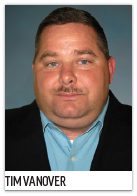 Providing jobs and opportunities for personal growth is key to the organization’s mission. “When you give a job to someone who typically doesn’t get those opportunities, it changes their life,” says Twitchell. “Our employees greatly value and appreciate their jobs, and that passion and sense of self-worth through employment is infectious.
Providing jobs and opportunities for personal growth is key to the organization’s mission. “When you give a job to someone who typically doesn’t get those opportunities, it changes their life,” says Twitchell. “Our employees greatly value and appreciate their jobs, and that passion and sense of self-worth through employment is infectious.
“Travelers do recognize and appreciate the enthusiasm and hard work of our employees,” he continues. “They appreciate that our employees take their jobs seriously.”
That said, PRIDE prepares its employees for the possibility of interacting with travelers who are having a rough day or are generally less supportive of the company’s mission. “By an overwhelming margin, people say they have positive interactions with our employees,” Vanover reports, noting that customer service is key to the company’s success.
Keeping a busy facility such as SEA clean requires constant vigilance, Twitchell emphasizes. The airport is open 24 hours a day and served 46.9 million passengers last year alone. To keep pace with the traffic, PRIDE cleans in cycles every 20 to 30 minutes from 5 a.m. to 1 a.m. Crews perform restoration work, such as floor care and restroom detailing, at night.
Although SEA’s new custodial policy only has been in effect for a few months, airport officials are optimistic that it will be effective long-term. “So far, most of the comments we have received from our airline customers and our travelers have been very positive,” reports Mathews. “And I expect that to continue.” 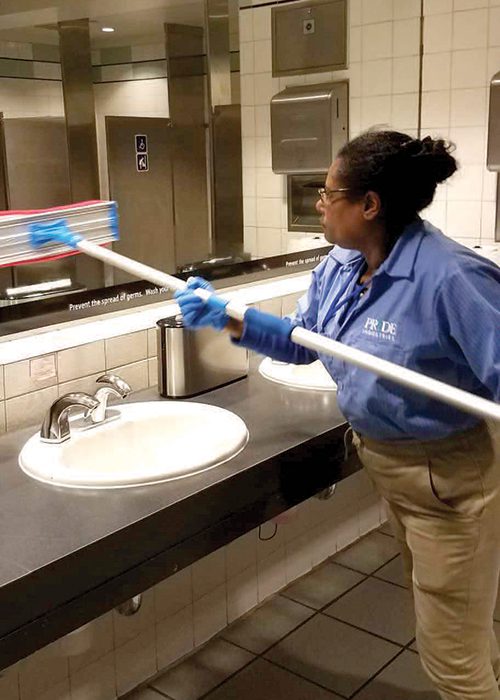
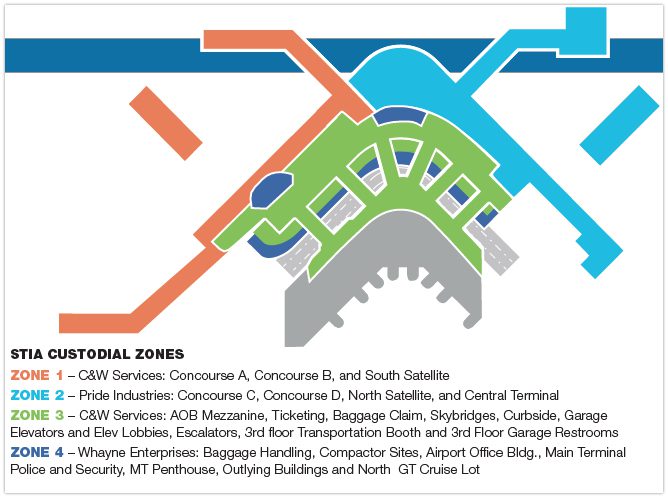

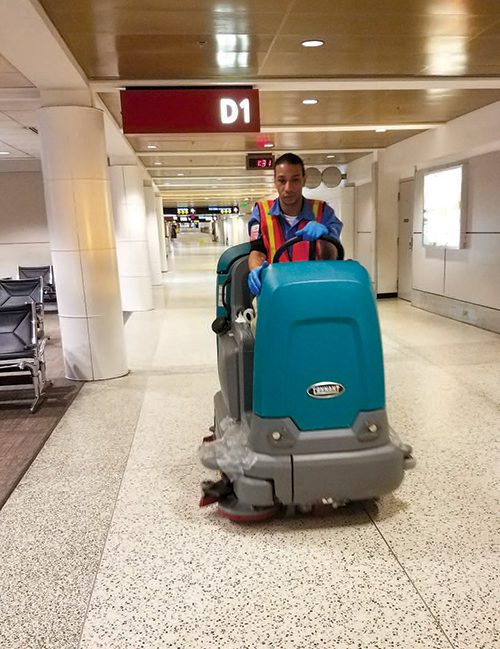
 facts&figures
facts&figures
